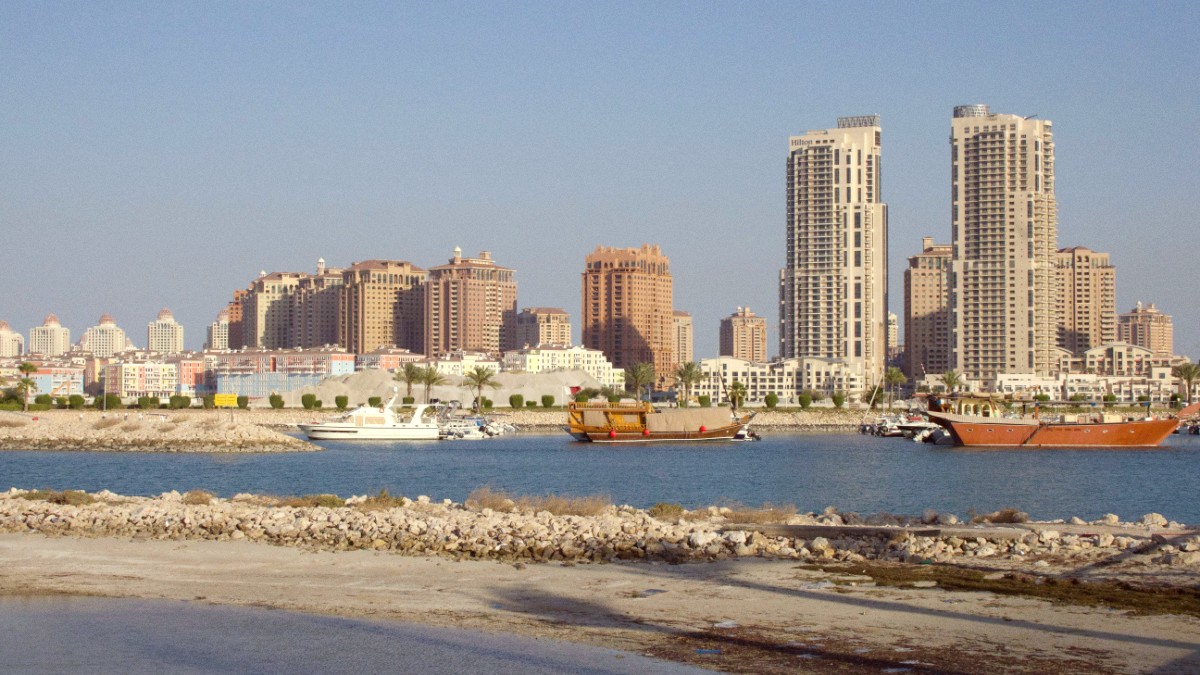
Qatar
Designated an UNESCO Biosphere Reserve, this area protects Qatar's unique desert ecosystem and its wildlife, including the Arabian Oryx. Efforts focus on preserving biodiversity and delicate desert habitats. Access is often restricted or requires specialized tours to support conservation.
Significant efforts are underway to protect and restore Qatar's mangrove ecosystems, especially in areas like Al Khor Island. Mangroves play an important role in coastal protection and provide habitats for marine life and migratory birds.
Specific beaches, like Fuwairit, are protected during Hawksbill turtle nesting season (April to July) to ensure the survival of this endangered species. Conservation programs monitor nests and protect hatchlings.
Be mindful of your environmental footprint during your visit.
Qatar has ongoing initiatives for waste management and recycling. While widespread public recycling bins may not be as common, major hotels and shopping malls often have their own recycling programs.
Qatar relies heavily on desalination plants for its fresh water supply, a process that is energy-intensive. Water conservation is an important practice for visitors.
Consider offsetting the carbon footprint of your flight to and from Doha through reputable carbon offset programs.
When choosing your accommodation, look for hotels with stated sustainability practices or environmental certifications.
Find outdoor apparel and gear from sustainable brands for your adventures.
Shop PatagoniaEthical tour operators contribute to responsible tourism by respecting local environments and communities. Consider G Adventures for ethical tours.
Cultural sensitivity creates respectful and meaningful interactions with the local community.
Qatar has made extensive efforts to preserve its rich heritage. This is evident in the meticulous restoration of Souq Waqif and the establishment of world-class institutions.
Interaction with local customs promotes understanding and a positive experience for everyone.
Respect privacy at all times. Do not photograph local women without explicit permission; this is highly inappropriate.
When visiting mosques or any designated prayer area, following specific rules for entry and conduct matters.
In addition to responsible actions, consider supporting organizations that promote environmental and social good through their products and initiatives.
Choose outdoor and travel gear from brands committed to environmental and fair labor practices.
Carry reusable items to minimize single-use plastics and general waste during your travels.
Support organizations with a conservation mission, even through small purchases. Consider The Rainforest Site.
Ethical tour operators contribute to responsible tourism. Consider companies like G Adventures for your travels, prioritizing community and environment.
Support local businesses to ensure your visit benefits the community directly.
While Doha's tourism is largely driven by large-scale attractions and hotels, supporting small local businesses, notably those in Souq Waqif, contributes directly to the local economy and traditional livelihoods.
When purchasing souvenirs or gifts, seeking artisan products in souqs or cultural centers is a good choice. Direct purchases from local craftspeople ensure the economic benefit directly supports them and their traditional skills.
If you wish to make a charitable contribution, do so through established and reputable local charities and non-governmental organizations rather than giving directly to individuals on the street. This approach ensures your contribution reaches those in need effectively and appropriately within cultural norms.
Donate to official local charities that have transparent operations and accountability.
Direct giving to individuals on the street may not be the most effective way to help or align with local customs.
Learn about various local initiatives to identify where your contributions can create the most positive difference.
Be aware of the origins of souvenirs. Avoid purchasing items made from exploited labor or endangered species. Do not engage in any illegal activities, including purchasing illegal goods or substances, which can have serious legal consequences.
Your travel choices make a difference in local economies and cultural preservation. Consider sustainable and ethical options.